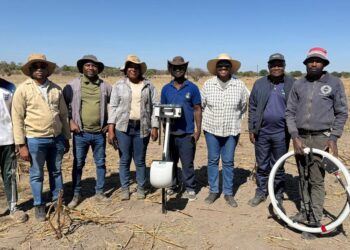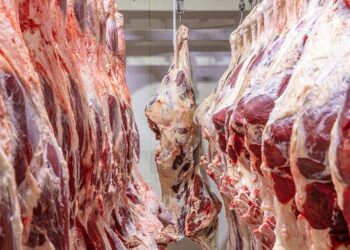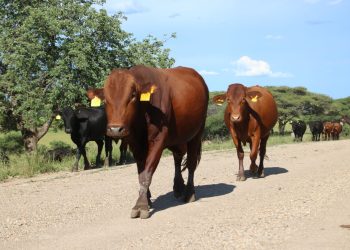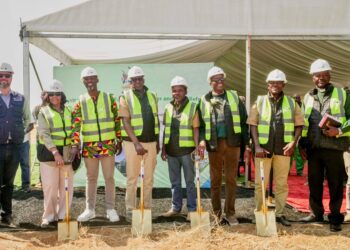
Agricultural Bank of Namibia (Agribank) says it has facilitated financing of over 10 million hectares of land, primarily to previous registered landowners in Namibia.
Taleni Katoma, the Acting Executive of Sales at Agribank said the bank remains committed to providing affordable interest rates and funding options to its customers in the agricultural sector.
Katoma emphasised Agribank’s unique position as the sole bank in the country focusing solely on agriculture.
 “Agribank is still proud to be the only bank within the country that is focusing on agriculture, and since the transition we have funded so far over 10 million hectares of land, the funding provided by AgriBank has primarily benefited previous registered landowners, who have been able to secure financing for their agricultural endeavours.” Katoma told the recently held  State of the Business Address (SoBA).Â
She says since its transition, the bank has played a crucial role in financing agricultural projects, contributing to the development and expansion of the sector as the bank’s commitment to supporting its customers extends beyond offering financial assistance
“We’ve also realised the importance of providing mentorship to our farmers, both emerging and commercial, so that they can survive through drought and other challenges,” Katoma added.
Acknowledging the impact of drought on the agricultural industry, Katoma stressed Agribank’s dedication to supporting farmers during such difficult times.
“The bank has recognised the significance of providing comprehensive assistance beyond financial aid. By offering mentorship programs, Agribank aims to equip farmers with the necessary knowledge and skills to navigate challenges effectively,” she said.
As Namibia faces the possibility of another year of drought, Agribank’s support becomes even more crucial, She said the that, “the bank remains committed to adjusting its financing strategies based on the needs of farmers.”
Katoma said Agribank is constantly reviewing and adapting its threshold limits and interest rates to ensure they align with the financial requirements of its customers.
At the same event, Piet Gouws, the President of the Namibia Agricultural Union, highlighted the challenges faced by the agricultural sector, acknowledging the inconsistency caused by factors such as drought and disease outbreaks.Â
Gouws emphasised that Namibia, being a drought-stricken country, has experienced severe droughts in recent years, leading to a significant decrease in animal numbers.
“The agricultural sector has been inconsistent due to Namibia being a drought-stricken country. We have experienced severe droughts up until 2019, which decreased our animal numbers by 50%, including sheep and live cattle,” Gouws explained.
The impact of these droughts has been profound, as the sector has had to focus on rebuilding herds and recovering from the losses incurred, he said.
Gouws further highlighted the recurring dry cycles that the country is facing, underscoring the challenges imposed by nature and climate conditions.
“These factors act as limiting factors for the agricultural sector, affecting the productivity and growth potential of the industry. Additionally, Namibia has faced difficulties due to the outbreak of foot and mouth disease in South Africa, which has impacted the importation of genetics material to expand the sector,” he explained.
In terms of the agronomic sector, Gouws identified the limitations faced as net importers. While irrigation presents a potential solution, he emphasised the need to unlock the potential of green schemes in order to fully utilise irrigation opportunities.
Gouws believes that there is significant untapped potential in these schemes that, if properly harnessed, could contribute to the sector’s growth and sustainability.
“To maintain the volume of production, we must also address the challenges in the harder-to-reach areas,” Gouws added.
Â
Â
Â
Â
Â
Â
Â
Â
Â
Â
Â
Â
Â
Â
Â
Â
Â
Â
Â
Â
Â
Â
Â











